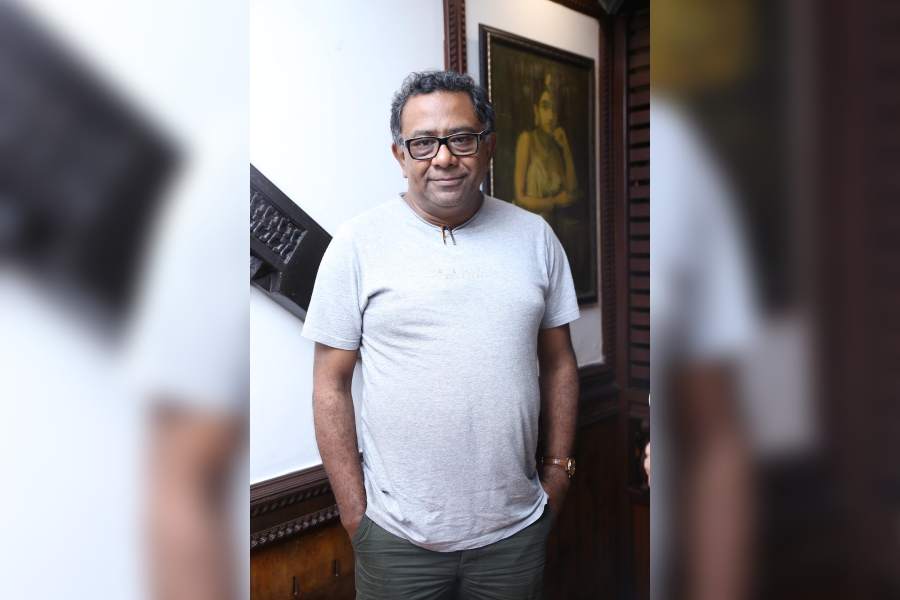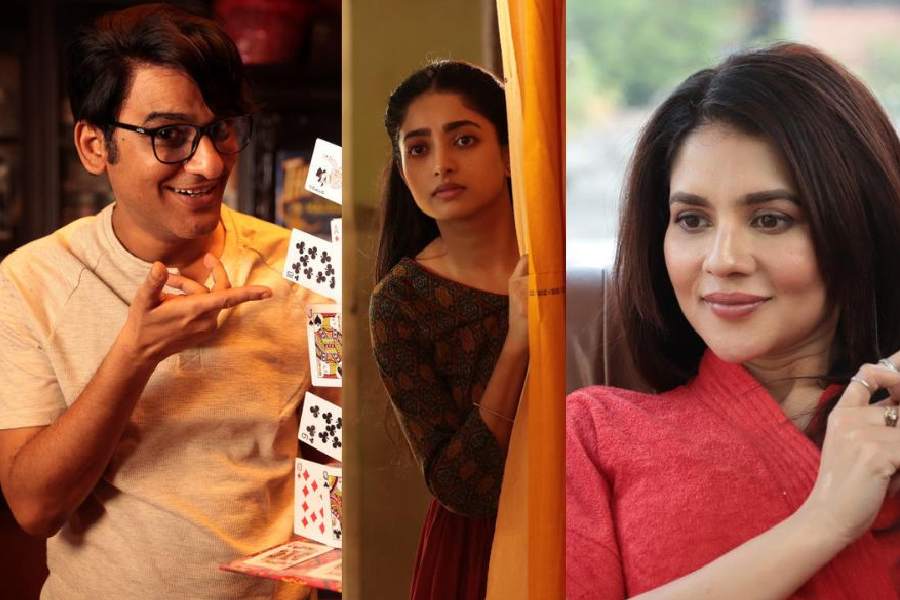In our younger days the word ‘serio-comic’ used to be an adjective for certain narratives that were written and performed to offer the film buffs serious social comments capsuled in delicious, witty and humorous satires. Today, it has taken the form of ‘social comedies’. Ektu Sore Boshun (Space, Please) is one such effort.
Since the heydays of cinema, Charles Chaplin and Jacques Tati taught us about the elementary principles of physical acting, social commentary, visual storytelling, sentimentality, pathos and, of course, graceful slapstick performances mixed with supportive musical scores in building up comical situations. Later, filmmakers like Gene Wilder, Buster Keaton, Mel Brooks, Bill Murray, Jean Pierre Jeunet, Woody Allen, Pedro Almodovar, Wes Anderson (to name a favourite few) have been consistent protagonists in making comedy films or designing comical situations in their films.
In Bengali film history too, timeless comedies have been made by our predecessors and mentors like Satyajit Ray, Tapan Sinha, Tarun Majumdar, Nirmal Dey, Nityananda Dutta, Dinen Gupta, Agradoot, Aurobinda Mukherjee, Shree Jayadrath, Umanath Bhattacharya — just to recollect a few.
Inspired by them, finally I gathered the courage to walk the path of making a ‘social comedy’ entitled Ektu Sore Boshun based on a short story penned by Bonophool, another Bengali legend in the field of literature.
It is a hilarious journey of an unemployed suburban youth who tries treading the modern urban quagmire of funny social oddities and intensely amorous relationships.
Guddu, a Sanskrit graduate residing in a small Bengal town called Begunbagicha, is wasting his time there, jobless and aimless. His friends are equally inept, parents slightly eccentric, his childhood love Piu the only shining light. The surroundings are full of oddball characters. Finally, Guddu with the help of his friend Aalpin, a penny stock player who has his own agenda steals the only family heirloom and escapes to Calcutta. His goal? Reach the house of his far-removed cousin Fotke da, a huge success story with a cushy MNC job and beg him for a job opportunity. But so obvious is his destination that folks back in Begunbagicha figure out his plan.
Piu, his mother Mahima and Jogen, an acquaintance and Guddu’s school teacher follow him to Calcutta. A series of incidents follow, and Guddu becomes a hero following an act of courage (accidental), is given the moniker of ‘Notun Bhai’ by the media. He meets Rokeya, the ultra-mod placement agency owner.
Hilarious incidents follow, including clandestine meetings with Piu and a series of failed job interviews procured through Rokeya, who takes a more than keen interest in Guddu, resulting in a complete makeover and trips to a spiritual society. As all these shenanigans fail, Fotke da, cajoled constantly by his wife Urmi finally consents to take him to his MNC for a job.
The key reason for making a film like this definitely got stimulated by the social situation full of oddities in our times and around us. Bonophool’s story depicted the crisis of encumbering unemployment in his time. Though years have passed since he authored the story, the crisis of begetting a job has been amplified by manifolds. That has been haunting me for long. So, the film might be considered as a creative reaction of an individual that I hope the collective would relate to.

Kamaleswar Mukherjee
Cinematic canvas
While planning the narrative itself, what was sacrosanct in my mind was to tick all the boxes that can constitute a film of this genre. The paramount factor in a creative presentation is always actors, the key peg that holds the spectrum together. And since this has strong elements of comedy, I had to ensure that we get actors who have exceptional comic timing as comedy is essentially a play amongst the performers. As we know, comedy is often exaggerated emotions, but they still have to be completely real and organic. And care had to be taken to ensure that it didn’t become farcical or burlesque. And the final jigsaw, it needed to be understood by the common man.
I was lucky to convince a set of brilliant actors which developed into an ensemble cast which if I may say so myself, is a rather envious one. Names like Ritwick Chakroborty, Paoli Dam, Ishaa Saha, Payel Sarkar, Rajatava Dutta, Paran Bandhopadhyay, Manasi Sinha, Kharaj Mukherjee, Lokenath Dey, Biswanath Basu, Parthasarathi Chakrabarty, Debranjan Nag and many others truly helped give shape to my vision. A subject that has stayed topical even today and has social elements strewn into the fabric was the need of the hour. Hence the dialogues have been penned keeping the overall visage that I had envisioned. I can humbly say that all my artistes have excelled and helped give shape and direction to this effort.
Ideally, filmmaking is supposed to be a presentation of the director’s mood and moments at that particular time. Good cinema also has a social responsibility to tell a story that has a theme that is topical. Within the commercial ambit, one has to also keep in mind the audience’s expectations and their emotional release points. Music has always played a very important role in Indian commercial cinema and continues to do so. Good songs set to appropriate tunes have been a ‘go-to’ ploy for innumerable features.
In an ideal cinematic canvas, the words of a song should be connected to the universal context of the story and help carry it forward. I hope we have been able to achieve that. Brilliant exponents of this art like Debajyoti Mishra, Anindya Chatterjee, Ranojoy Bhattacharya have given us some beautiful words and tunes. Poetic justice has been done with the vocals, the peerless Arijit Singh, the effervescent Sunidhi Chauhan, the Bangaliyana in Anwesha and Rupankar’s voice and the pep of Cizzy and Fiddler’s Green... every department has excelled in a harmonical accord and given us a musical score that’s truly refreshing.
In conclusion, the entire team of Ektu Sore Boshun has endeavored to present the audience with a piece of work that’s engaging and laughter-worthy in places and yet thought-provoking. I will be thrilled as a director if this film manages to initiate a discussion and debate amongst the audience. At the end of the day, we makers create our little world, shower it with care and love and present it to an audience that’s hopefully appreciative and receptive. Every film has its own journey and as I get set to let it sail, all I can say is Bon Voyage.











